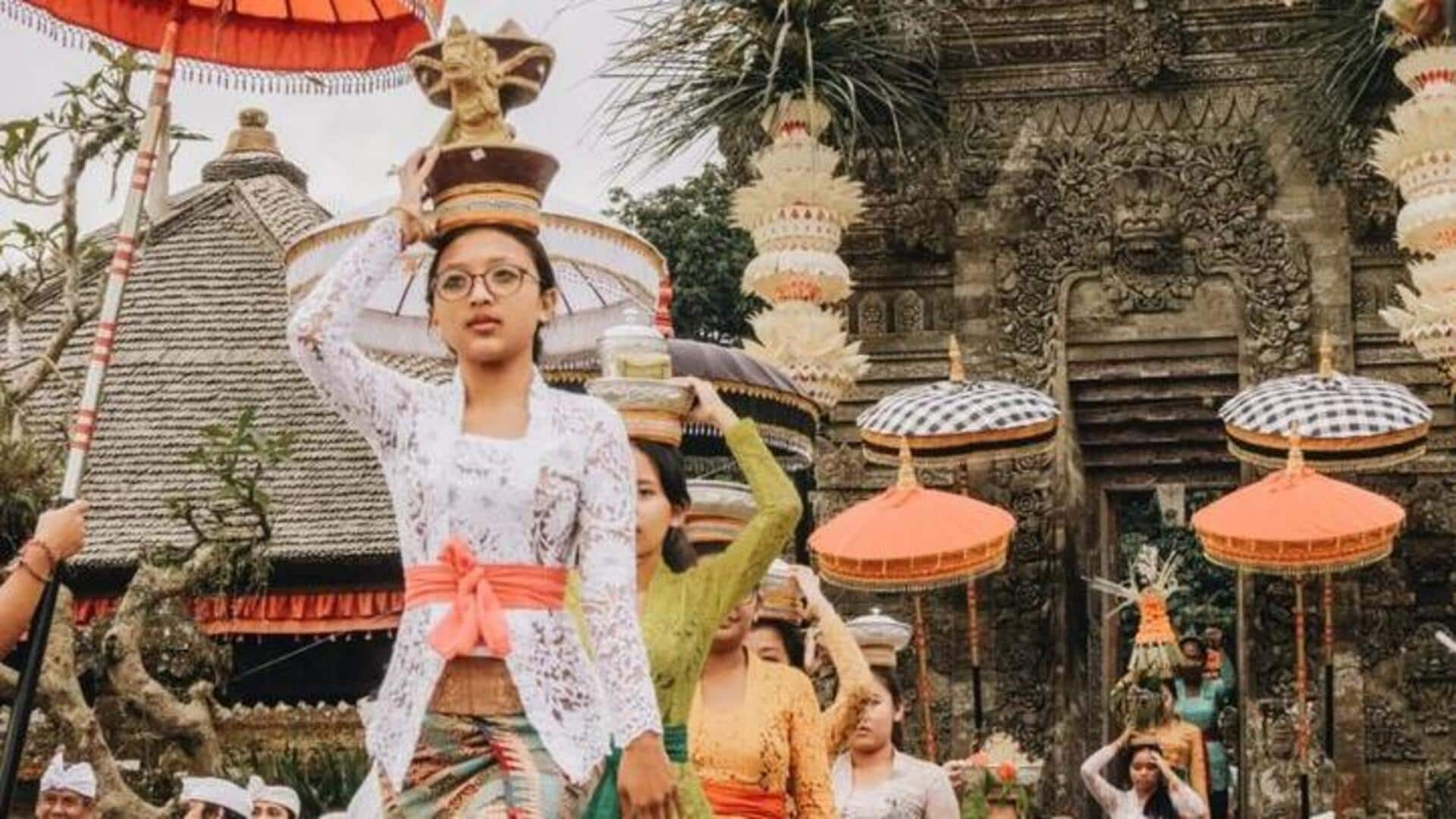
Discover Indonesia's rice harvest festivals
What's the story
Indonesia celebrates rice harvest festivals that are steeped in tradition and culture. It is a time for farmers to rejoice and communities to unite. With traditional music, dance, and local delicacies, these events give visitors a glimpse into Indonesia's vibrant culture and the significance of rice in its history and economy.
Rituals
Traditional rituals and ceremonies
Rice harvest festivals in Indonesia frequently commence with traditional rituals and ceremonies. These rituals are conducted to pay respect to the spirits believed to guard the crops. Offerings of fruits, flowers, and incense are made as a token of appreciation for a bountiful harvest. The ceremonies may differ from region to region but typically involve prayers led by community elders or spiritual leaders.
Performances
Cultural performances and music
Cultural performances take center stage at these festivals. Local artists dressed in colorful costumes enthrall visitors with traditional dances like the Saman dance or the Legong dance. The traditional instruments such as gamelan or angklung add to the experience, giving a glimpse into Indonesia's rich cultural heritage. Music fills the air at these celebrations, making it a joyful and festive affair.
Cuisine
Local cuisine delights
Food stalls serving local cuisine are a staple at rice harvest festivals. Visitors can treat themselves to a variety of rice-based dishes like nasi goreng or lontong sayur. These dishes highlight the versatility of rice as a staple food in Indonesian cuisine. Not to mention sweet treats like klepon or kue lapis which add to the culinary experience.
Community activities
Community involvement activities
Community involvement is also encouraged during these festivals through activities like cooking competitions or craft workshops. Participants can learn traditional skills like weaving or pottery making from local artisans. These artisans gladly share their knowledge, ensuring that traditions continue across generations. This fosters unity among attendees, irrespective of age group, background, nationality, etc.